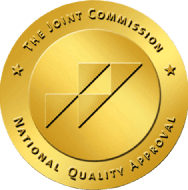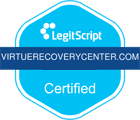Start your recovery right away.
Start your recovery right away. Contact Virtue Drug and Alcohol Recovery Center at 866-461-3339 to find a treatment program near you.
Many people who struggle with drug addiction and alcoholism choose not to seek treatment because it can be costly. But even for people in need who lack health insurance or cannot afford the cost of private treatment, there are options for substance abuse therapy. Learn how state-funded rehabilitation programs in Texas can reduce the expense of drug and alcohol recovery. Check out our list of Texas rehabs near you.
A state-funded rehab clinic is a treatment institution that gets support from the government for persons struggling with drug or alcohol addiction. These state-funded substance abuse treatment facilities may be managed by state, local, or nonprofit groups.
State-sponsored drug treatment programs typically offer various services, including detoxification, counseling, therapy, and aftercare support. These rehab facilities aim to provide substance abuse treatment for low-income individuals and show them the tools and resources to overcome addiction and achieve long-term recovery.
One of the benefits of state-funded addiction treatment is that these public drug treatment centers are often more affordable than private facilities. But on the other hand, state-backed treatment facilities frequently have a long wait for admittance and limited resources. Therefore, it’s crucial to research and locate a publicly-funded facility that provides the best care on your road to sobriety.


Texas government-funded drug rehab centers typically cover addiction treatment. Texas has several programs that provide substance abuse treatment and recovery services to eligible individuals who don’t have private insurance or the means to pay for treatment. In addition to these state-financed programs, nonprofit organizations and community-based groups provide addiction treatment and recovery services.
It’s important to note that eligibility requirements for state-funded rehab programs in Texas may vary based on factors such as income, insurance status, and the severity of the addiction. If you’re seeking addiction treatment in Texas, contact your local health department or call 866-461-3339 to speak with a Virtue Recovery Center admissions coordinator. They’ll be happy to provide information on available options and eligibility requirements.
State-funded rehab centers in Texas typically cover mental health treatment. Texas offers various services through its public behavioral health system, including state-funded rehab and community mental health centers. The Texas Department of State Health Services oversees the state’s public behavioral health system. It funds local communities and organizations to support mental health and substance abuse treatment services.
The state also offers several mental health programs specifically designed to serve certain populations, such as children and adolescents, veterans, and individuals with severe mental illness.
Eligibility requirements for state-funded mental health services in Texas may vary based on factors such as income, insurance status, and the severity of your mental health condition. You can contact Virtue Recovery Center at 866-461-3339 for more information.


State-funded rehab centers in Texas typically cover dual diagnosis treatment. Many offer specialized services, such as therapy, counseling, detoxification, medication management, and support groups, for individuals with dual diagnoses. State-operated rehab clinics know that simultaneously treating both illnesses can help achieve sobriety and that co-occurring substance abuse and mental health issues go hand in hand.
Explore Virtue Recovery Center’s Alcohol Addiction Recovery Programs, available in Arizona, Texas, Nevada, and Oregon. Our tailored, comprehensive approach addresses every aspect of addiction, offering personalized treatments, evidence-based therapies, and holistic care. We’re committed to providing the tools and support needed for lasting sobriety and well-being, guiding each individual toward a healthier, fulfilling future.
Our programs define our exceptional approach at Virtue Recovery Center. From personalized treatment plans tailored to meet individual needs to applying advanced evidence-based therapies, we focus on holistic, integrative care.
Our dedicated team offers compassionate support, fostering a healing environment that encourages recovery and growth.
We emphasize community building and ongoing support, ensuring our clients have a solid foundation for long-term success and a sustained journey toward sobriety and well-being.
Addressing physical, emotional, and psychological aspects of addiction.
Tailored plans to meet individual needs.
Including counseling and support groups.
Integrated into individualized care for a well-rounded recovery.
Understanding that each person’s path to recovery is distinct.
Equipping clients with tools for long-term sobriety and success.
Aftercare services to assist in maintaining sobriety and facing life’s challenges.
At Virtue Recovery Center, we believe in a holistic and individualized approach to recovery.
Our method goes beyond treating symptoms, aiming to uncover and address the root causes of addiction.
By integrating various evidence-based therapies and holistic treatments, we ensure a comprehensive recovery experience.
Our approach is adaptive, evolving with each client’s journey to meet their changing needs and support their growth every step of the way.

The Joint Commission is recognized as the nation's largest and only accreditor that spans the full continuum of care. Accreditation by The Joint Commission signifies that our facility meets the rigorous standards for quality and safety in healthcare.

LegitScript Certification is crucial for healthcare providers operating online, including those specializing in addiction treatment. Being LegitScript-certified means we adhere to the highest standards of safety and compliance, ensuring that we operate legally and safely.

The National Association of Addiction Treatment Providers (NAATP) is a leading organization dedicated to providing support, advocacy, and resources to addiction treatment providers across the United States.

BBB Accreditation signifies our commitment to integrity, ethical business practices, and customer service excellence. As a BBB Accredited Business, we are part of a select group of companies that have committed to high standards and best practices in all areas of operation.
Dedicated to empowering individuals to overcome addiction, regain control of their lives, and achieve a future of health, happiness, and fulfillment.
Discover the Powerful Transformations of Our Clients at Virtue
Texas is the second-largest state in the United States, located in the southern region, sharing part of its border with the Gulf of Mexico. The Lone Star state’s history dates back thousands of years. Originally inhabited by various indigenous groups, the 16th century brought Spanish explorers, followed by French and English explorers in the 17th and 18th centuries.1
In 1836, Texas declared its independence from Mexico and became a republic, and in 1845, it became the 28th state. Its history, geography, and demographics influence Texas’ diverse culture. Texas is known for its music, particularly country and blues, as well as its art, literature, and film. It is also famous for its food, particularly barbecue and Tex-Mex cuisine.
One of the most iconic pastimes in Texas is the rodeo. Rodeo has a long history in the state and is deeply ingrained in its culture. The Houston Livestock Show and Rodeo is one of the world’s largest and most famous rodeos, attracting millions of cowboys and visitors annually. Another popular rodeo in Texas is the Fort Worth Stock Show and Rodeo.
Texas also has several famous landmarks, including the Alamo in San Antonio. The Alamo is a historic mission that played a crucial role in the fight for Texas independence. Other notable landmarks include the State Capitol building in Austin, the San Jacinto Monument in Houston, and the Space Center Houston, home to NASA’s Johnson Space Center.
The state’s largest industry is oil and gas, as Texas is the country’s top crude oil producer. Other important industries include agriculture, technology, and manufacturing. The state is also a major center for international trade, with several large ports along the Gulf Coast.
Texas has several well-known healthcare systems. For example, the University of Texas MD Anderson Cancer Center in Houston is one of the top cancer hospitals in the world, offering cutting-edge treatments and research. In addition, the Baylor Scott & White Health system, based in Dallas, is the most extensive nonprofit healthcare system in Texas, with over 50 hospitals and more than 1,000 patient care sites.
Unfortunately, millions of individuals lack access to healthcare, as Texas has the highest rates of uninsured residents nationwide.2
The cost of state-funded rehab centers varies depending on the facility and its location. However, low-cost rehab centers are generally taxpayer-funded. Some centers may offer free rehab programs, while others charge a sliding scale fee based on your income. In some instances, you can use insurance to cover rehab treatment costs.
You can also use the government-sponsored health insurance programs, Medicare and Medicaid, to get access to treatments for addiction:
Eligibility requirements for state-funded rehab in Texas can vary by program and the types of services offered and may be subject to change. However, in general, individuals who meet the following criteria may be eligible for Texas state-funded substance abuse treatment:
You must consider aspects like the facility’s location, the particular services provided, and the cost of treatment while looking for Texas state-funded rehab. Then, contact the facility directly to learn more about their admissions policies and participation criteria. Below are a few ways to begin your search for affordable drug treatment centers:
Call Virtue Recovery Center at 866-461-3339 to speak with an admissions coordinator today. They’ll be happy to answer any questions or concerns you may have.
Virtue Recovery Center is dedicated to a holistic approach to addiction treatment, encompassing evidence-based solutions, education, advocacy for industry reform, and research to set high standards in addiction care. We strive for excellence and consumer protection in treatment services. For a free assessment, dial 866-461-3339 and start your journey to sustainable recovery.
Explore our accredited and certified facilities listed below for more information:
Arizona is a southwestern state in the United States, known for its diverse landscapes and hot desert climate. The state's landscapes range from the beautiful red rocks of Sedona to the towering saguaro cacti of the Sonoran Desert. Arizona is also home to the Grand Canyon, one of the Seven Natural Wonders of the World, attracting millions of tourists each year.
Phoenix, the state's capital and largest city, offers a vibrant mix of cultural activities, sports events, and a thriving culinary scene. Tucson, Arizona's second-largest city, is a university town that draws visitors with its historic sites and nearby national parks.
Arizona has a rich cultural heritage influenced by Native American, Spanish, Mexican, and pioneer history. The state has 22 federally recognized tribes, more than any other in the United States, contributing significantly to the state's cultural fabric.
The economy of Arizona is robust and diverse, with sectors like healthcare, education, and technology playing significant roles. The state is also one of the largest copper producers in the U.S.
Arizona is known for its hot summers and mild winters, making it a popular destination for snowbirds — people who live in colder climates but migrate south during the winter. However, not all of Arizona is desert; the state also features pine forests and mountain ranges, particularly in the northern regions around Flagstaff and the White Mountains.
For more detailed information, you can visit the official website of Arizona here.
Nevada, largely a desert and semi-arid state, is perhaps best known for Las Vegas, an internationally renowned major resort city known primarily for its gambling, shopping, entertainment, and nightlife. However, Nevada also offers natural beauty, such as the scenic landscapes of Red Rock Canyon and the Great Basin National Park.
Nevada, often known as the "Silver State" due to the importance of silver to its history and economy, is a state in the Western region of the United States. It's bordered by Oregon to the northwest, Idaho to the northeast, California to the west, Arizona to the southeast, and Utah to the east.
Nevada is primarily desert and semi-arid, with much of it located within the Great Basin. Areas south of the Great Basin are within the Mojave Desert, while Lake Tahoe and the Sierra Nevada lie on the western edge. Nevada is the most mountainous state in the contiguous United States.
Las Vegas, the state's largest city, is known globally for its entertainment, gaming, shopping, and dining. The city also serves as the leading financial, commercial, and cultural center for Nevada. Other major cities include Henderson, North Las Vegas, Reno (known for its casinos and proximity to Lake Tahoe), and Sparks.
Nevada has a diverse economy that includes tourism, mining, and cattle ranching. The state is the fourth largest producer of gold in the world.
The state is home to several institutions of higher education, including the University of Nevada, Las Vegas, and the University of Nevada, Reno.
Nevada's vast landscapes offer outdoor activities like hiking in the Sierra Nevada Mountains or visiting the Valley of Fire State Park. The Hoover Dam, Red Rock Canyon National Conservation Area, and the Neon Museum are among the state's other attractions.
For more detailed information, you can visit the official website of Nevada here.
Oregon, located in the Pacific Northwest region of the U.S., is characterized by diverse landscapes that include forests, mountains, farms, and beaches. The state is known for its progressive and environmentally friendly policies. Cities like Portland are celebrated for their quirky, avant-garde culture and are home to iconic coffee shops, boutiques, farm-to-table restaurants, and microbreweries. The state’s beautiful coastline, Mount Hood, and Crater Lake National Park draw numerous outdoor enthusiasts each year.
Oregon, located in the Pacific Northwest region of the United States, is a state known for its diverse landscape of forests, mountains, farms, and beaches. It's bordered by Washington to the north, Idaho to the east, Nevada and California to the south, and the Pacific Ocean to the west. The Columbia River delineates much of Oregon's northern boundary, while the Snake River delineates much of its eastern boundary.
Oregon's largest city, Portland, is famed for its quirky, avant-garde culture and is home to iconic coffee shops, boutiques, farm-to-table restaurants, and microbreweries. Other significant cities include Salem (the state capital), Eugene, Gresham, and Hillsboro.
The state has a mixed economy with agriculture, fishing, hydroelectric power, timber, and technology (with several top tech companies such as Intel operating significant facilities there) playing significant roles. Oregon is also a major producer of wine, ranking third among U.S. states in terms of wineries.
Oregon's landscapes range from the windswept Pacific coastline to the Cascade Mountains, and from verdant vineyards to high desert country in the east. The state is also home to Crater Lake National Park, Mount Hood, Multnomah Falls, and the scenic Columbia River Gorge.
The state has a reputation for progressive policies, having been the first state to enact a bottle bill (requiring can and bottle recycling) and one of the first to legalize recreational marijuana use. Oregonians also enjoy access to excellent outdoor recreation opportunities, including hiking, fishing, biking, and winter sports.
For more detailed information, you can visit the official website of Oregon here.
Start your recovery right away. Contact Virtue Drug and Alcohol Recovery Center at 866-461-3339 to find a treatment program near you.
Private and public-funded rehab centers can provide effective substance abuse treatment services. However, the decision between private and public rehabilitation centers may depend on factors such as financial resources, treatment needs, and personal preferences. Below is a table demonstrating the key differences.
[1] Kiffel-Alcheh, Jamie. “Texas.” National Geographic Kids, 23 June 2021, kids.nationalgeographic.com/geography/states/article/texas.
[2] “Why 5 Million Texans Are Uninsured: New Study.” Texas 2036, Oct. 2022, texas2036.org/posts/why-5-million-texans-are-uninsured.
[3] U.S. Centers for Medicare and Medicaid Services. “Welcome to Medicare.” Medicare, www.medicare.gov. Accessed 22 Apr. 2023.
[4] U.S. Centers for Medicare and Medicaid Services. “Medicaid Eligibility.” Medicaid, www.medicaid.gov/medicaid/eligibility/index.html. Accessed 22 Apr. 2023.
[5] “Drug Report.” Texas Department of Public Safety, 26 Feb. 2021, www.dps.texas.gov/sites/default/files/documents/crimereports/20/drug_report_2020.pdf.
[6] Maxwell, Jane Carlisle, Ph. D. “State of Texas Drug Use Patterns and Trends, 2019.” The University of Texas at Austin, 2019, socialwork.utexas.edu/wp-content/uploads/2020/09/Texas-Substance-abuse-trends-2019.pdf.
[7] Maxwell, Jane Carlisle, Ph. D. “Drug Trends in Texas 2021: A Report to the National Drug Early Warning System.” The University of Texas at Austin Addiction Research Institute, 16 July 2021, socialwork.utexas.edu/wp-content/uploads/2021/07/texas-drug-trends-2021.pdf.
[8] U.S. Department of Health & Human Services. “2016-2017 NSDUH State-Specific Tables.” Substance Abuse and Mental Health Services Administration (SAMHSA), 5 Feb. 2019, www.samhsa.gov/data/report/2016-2017-nsduh-state-specific-tables.
[9] “Study on Substance Abuse Treatment Services.” Texas Health and Human Services, Nov. 2020, www.hhs.texas.gov/sites/default/files/documents/laws-regulations/reports-presentations/2020/study-substance-abuse-treatment-services-nov-2020.pdf.
[10] “Drug Overdose Death Rates | National Institute on Drug Abuse.” National Institute on Drug Abuse, 31 Mar. 2023, nida.nih.gov/research-topics/trends-statistics/overdose-death-rates.
[11] Firm, Linder. “Texas Drug Statistics.” The Linder Firm, 23 July 2021, www.thelinderfirm.com/resources/blog/texas-drug-statistics.
-of-substance-abuse-treatment-facilities-in-the-us-by-operation-type.
If you have any further questions, please fill out this form. A member of our team will be able to help.
